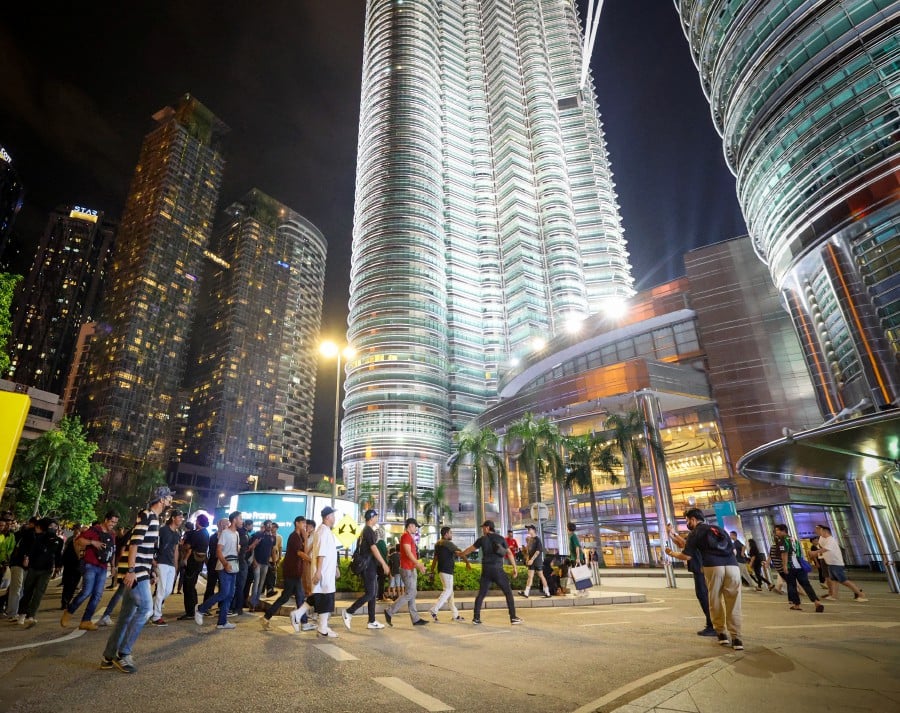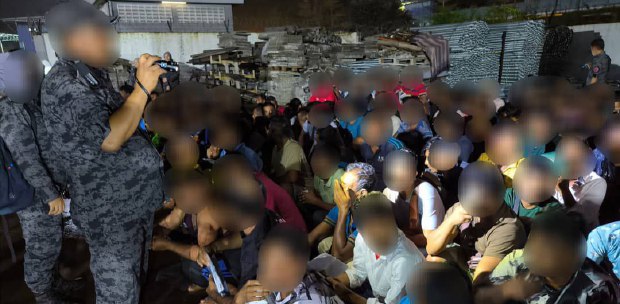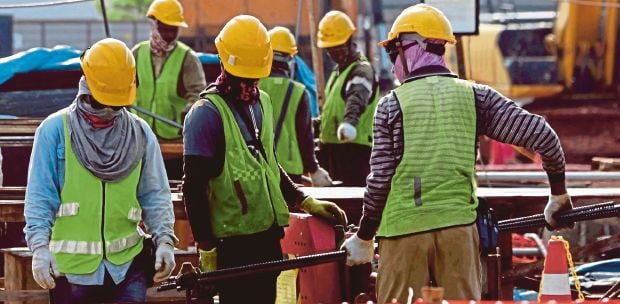There are 2.2 million migrant workers spread across Malaysia's construction, manufacturing, plantation, agriculture, mining, quarrying and services sectors.
What's common about these jobs is that they are mostly menial, tough and dangerous, and so low-paying that Malaysians are seen only in the C–Suite, or field or plant management.
Then there's the 3.3 million undocumented migrants operating off the books, enabled by a system of criminality and gangsterism.
In previous decades, migrants squatted in forest communes, forming extended communities that gradually displaced local businesses.
They later transitioned into setting up illegitimate city centre trading hubs, eventually dubbed a "Little City" of sorts.
In recent years, they muscled in onto wet market turfs, and got involved in violent crimes, vice or international human trafficking. The top six nations where most of these migrants in Malaysia originate from are Indonesia (1.34 million), Nepal (585,000), Bangladesh (415,700), Myanmar (350,000), India (148,000) and the Philippines (118,000).
For decades, Malaysia was reputedly the region's migrant paradise after we invited them (or they invited themselves) to take up jobs that locals shunned. First by the boatloads, then in planeloads, as they seized these jobs while employers bent laws to secure their employment.
As demand for migrant workers escalated, some employers treated employment laws as "cumbersome" and expensive. Besides paying a pittance in wages, they provided poor living conditions and unsafe work practices, with dismal healthcare, but long hours.
Recruitment agencies, in collusion with errant employers, deceived migrant workers with bogus promises that took advantage of their vulnerabilities. These intolerable conditions inevitably compelled migrants to abandon their workplaces and slip into illegal status.
For all their sacrifices, hardships, misery and alienation, we accord them some measure of comfort like government healthcare, subsidised foodstuff and lodgings — the latest being a hostel developed by the Penang government.
However, the altruism has unnerved certain Malaysians filled with loathe that migrants should enjoy such privileges.
Like Gerakan: the party insists that the government block migrants from buying subsidised cooking oil after stocks were depleted because foreigners' accumulative purchases deprived the locals.
Like the Action Committee Against Foreign Workers' Hostel Construction in Teluk Kumbar, Penang: fearing a sudden uptick in social problems, they claimed that residents and their political representatives opposed the Bandar Baru Perda project to house 7,000 workers.
Migrants had faced blowbacks before but these protests have descended to a new low — organised xenophobia.
Protesters appear blind to the irony: migrant workers take on the dirty and hazardous jobs that no self-respecting local would do, but we can't muster a bantam of generosity to ease their difficulties? Ironically in a nation built on the back of migrant labour and that prides itself as foreigner-friendly? Therefore, these protests are immoral. In a nutshell, it is not Malaysia.





